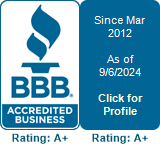There are only 4 ways of eliminating your IRS debt: 1) Paying it, 2) Waiting until the statute of limitations for collection has expired, 3) Successfully presenting an Offer in Compromise or 4) Discharge in Chapter 7 or Chapter 13 Bankruptcy.
Each of these carries positive and negative consequences to you. If you pay it, you'll likely be broke. If you don't pay it, the penalties and interest charged by the IRS will be huge. Then, you'll be forced to confront the problem with the other solutions.
Pay the IRS: If you pay it, you can seek a refund, if appropriate so don't think your payment is lost forever. Sometimes, people can refinance their homes or other property to pay the IRS. Then, the mortgage is lower and the interest payments are deductible for a double benefit. Plus, you get the IRS out of your hair.
You can get loans from family members who act like a bank and take a promissory note and deed of trust to ensure payments. If the transaction is legitimate the same benefits flow to you as if it were a bank loan.
You can also sell property to get cash. But, be careful not avoid a capital gain tax problem.
Some people want to withdraw from a 401(k) or IRA plan to pay the taxes. If possible, it is best to take out a loan rather than a distribution to avoid the Income Tax and/or the 10% Penalty.
As you make payments the IRS may send you notices, such as Notice CP62, about your payments and what is your account balance. Or, they may not. Don't depend on them! Get your Account Transcripts regularly to verify your account.
Wait for Limitations Period to Expire: This takes a lot of diligence, patience and persistence. The IRS has 10 years to collect from you. That's a long time. Undoubtedly, you will have to prepare numerous documents explaining your situation and you can expect many setbacks.
Offer in Compromise: A successful Offer in Compromise will eliminate the tax debt. However, you must be very thorough and determined to win your case. More often than not, you will be required to present your case to IRS Appeals to be granted full relief. It is an expensive, long process.
Bankruptcy: Bankruptcy can be very effective to erase tax debts, if the rules are properly followed. Right now, if the returns were filed late no discharge is possible so you'll have to explore the other options. But assuming all the Rules are followed, a complete discharge is available in Chapter 7 bankruptcy. The tax lien will continue to survive for the full 10 year limitations period, which means you can't sell any of your property for 10 years or the IRS will get the proceeds.
Chapter 13 bankruptcy can be very valuable if you have property subject to the tax lien or priority taxes. Through the plan you can pay the taxes and get a full discharge at the end of 5 years.
The IRS has streamlined its bankruptcy and offer in compromise procedures so many of the same principles carry over into the other procedure. But, they don't work hand-in-hand. Many of the procedures are mutually-exclusive so you can damage your case by rashly filing for relief without considering the implications.
So, it's best to gather all the documents requested and bring them into our office so we can construct an intense Action Plan to fully resolve your IRS problem!
J. David Hopkins






